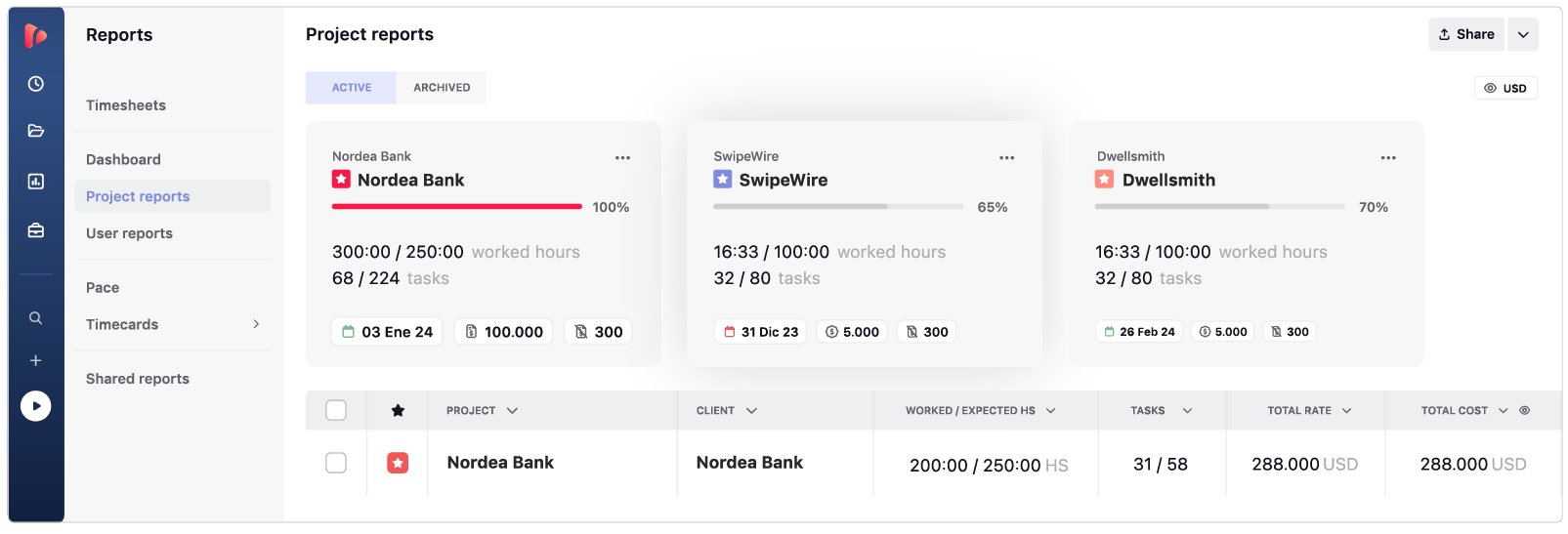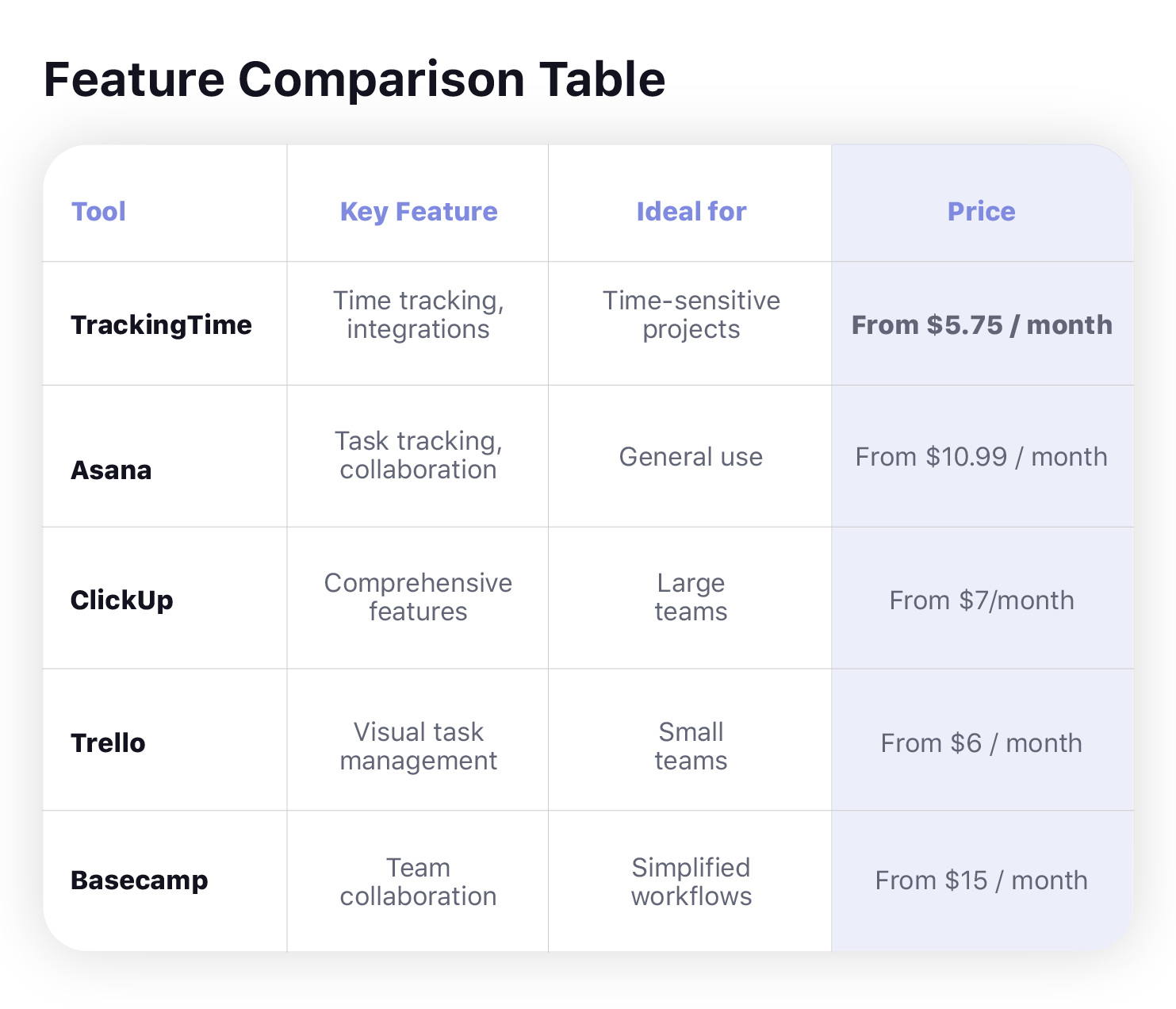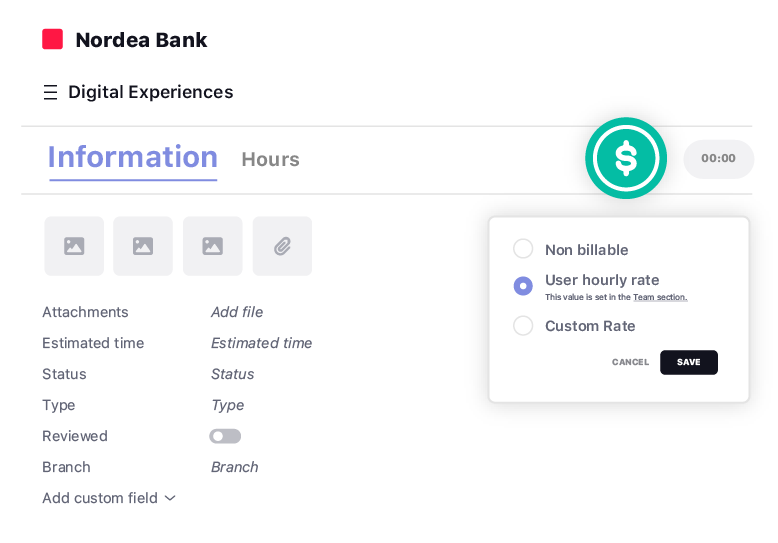Best Project Management Tools for SMBs: A Comprehensive Guide to Boost Efficiency
Managing projects effectively is critical for small and medium-sized businesses (SMBs) to thrive in a competitive landscape. This guide explores the best project management tools available, helping you streamline your operations, foster collaboration, and enhance productivity.
Project Management Tools for SMBs
- Project Management Tools: An Overview
- Key Features to Look for in Project Management Software
- Top Project Management Tools
- Comparing Project Management Tools
- How to Implement a Project Management Tool in Your SMB
- Success Stories
- Future Trends in Project Management Tools
- Wrapping Up: Choosing the Right Project Management Tool
Project Management Tools: An Overview
Project management tools have become essential for streamlining operations and driving efficiency. These tools serve as a centralized hub for planning, executing, and tracking projects, enabling teams to stay organized and focused. For SMBs, they are a game-changer—empowering businesses to optimize workflows, reduce costs, and enhance time management. By leveraging the right tools, small and medium-sized businesses can achieve their goals more effectively and maintain a competitive edge in an ever-evolving market.
What Are Project Management Tools?
Project management tools are software applications designed to plan, execute, and monitor projects. They help organize tasks, manage resources, and keep teams aligned towards achieving their goals.
Importance of Project Management Tools for SMBs
For SMBs, these tools provide an edge by optimizing workflow, reducing costs, and improving time management. They are indispensable for businesses that aim to grow while maintaining operational efficiency.
Key Features to Look for in Project Management Software
Choosing the right project management software can make all the difference in how effectively your team operates. The best tools not only streamline workflows but also foster collaboration, enhance productivity, and provide valuable insights for decision-making. From task management to scalability, here’s a breakdown of the key functionalities to consider.
Task Management and Workflow Automation
Efficient tools allow you to assign tasks, set deadlines, and track progress effortlessly. Workflow automation streamlines repetitive processes, ensuring consistency and saving valuable time. These features empower teams to focus on high-priority tasks, boosting overall productivity.
Time Tracking and Reporting
Time tracking features ensure accountability, while detailed reporting provides insights into project performance. Accurate time logs help optimize resource allocation and improve billing processes. With these tools, managers can identify bottlenecks and make data-driven decisions to enhance efficiency.
Collaboration and Communication
Built-in communication tools, shared workspaces, and integrations with messaging apps keep everyone on the same page. Real-time updates and centralized information ensure transparency and prevent miscommunication. These features foster a collaborative environment, enhancing team alignment and project outcomes.
Integration Capabilities
The ability to integrate with existing software, such as CRMs and accounting systems, is crucial for seamless operations. Integrations reduce data silos, ensuring smoother workflows and minimizing manual effort. This compatibility allows businesses to maintain their existing tech ecosystem while improving functionality.
Scalability and Customization
Choose a tool that adapts to your business’s growth and allows personalized workflows. Customization ensures the software aligns with your team’s unique needs and processes. Scalable solutions provide flexibility, supporting your organization’s expansion without compromising efficiency.
Top Project Management Tools
Finding the right project management tool can transform how SMBs handle tasks, collaborate, and achieve goals. With options tailored to different needs—from time tracking to visual organization—these tools empower teams to boost productivity and stay aligned. Whether you’re looking for an all-in-one solution like ClickUp, seamless task management with Asana, or enhanced collaboration through Basecamp, the right choice can streamline your operations and fuel growth. Here’s a look at some of the best project management tools for SMBs:
TrackingTime: Integrated Time Tracking and Project Management
TrackingTime combines task management with time tracking, making it ideal for businesses focused on productivity and accountability.

Asana: Streamlined Task Management
Asana excels in task management with its user-friendly interface and robust collaboration features. Its intuitive design allows teams to organize tasks efficiently and set clear priorities. With advanced project tracking and workflow visualization, Asana keeps everyone aligned on goals.
ClickUp: All-in-One Project Management
ClickUp offers extensive features, from task management to goal tracking, suitable for diverse business needs. It combines project timelines, document management, and resource planning in one platform. Customizable views and automation options make ClickUp adaptable to any workflow.
Trello: Visual Task Management with Kanban Boards
Trello simplifies task organization using its intuitive Kanban boards, perfect for small teams. Drag-and-drop functionality makes it easy to manage tasks and monitor progress visually. Power-ups and integrations enhance its usability, providing additional features without complexity.
Basecamp: Simplified Project Collaboration
Basecamp focuses on team communication, providing tools for message boards, to-dos, and scheduling. Its straightforward interface fosters transparency and ensures that everyone stays informed. Basecamp is ideal for teams seeking a no-frills platform for organizing projects and discussions.
Comparing Project Management Tools
Each tool offers unique strengths, from time tracking with TrackingTime to visual task management with Trello, catering to different team sizes and project requirements. Understanding subscription models, ease of use, and available customer support ensures you choose a solution that aligns with your budget and operational needs. This section breaks down key tools and their features to help you make an informed decision for your business.
Feature Comparison Table

Pricing and Subscription Models
Understand the costs associated with each tool to find one that fits your budget. Look for pricing plans that offer flexibility, such as tiered subscriptions or pay-as-you-go options. Consider whether the features included justify the expense, especially for growing teams or businesses.
User Experience and Interface
Ease of use is essential, especially for teams new to project management software. A clean, intuitive interface reduces the learning curve and encourages adoption among team members. Tools with customizable dashboards and clear navigation make managing tasks and projects more efficient.
Customer Support and Community Resources
Opt for tools with excellent customer support and active user communities for troubleshooting and tips. Quick access to assistance, whether through live chat, email, or a knowledge base, is invaluable. A vibrant user community provides additional insights, best practices, and creative solutions to common challenges.
How to Implement a Project Management Tool in Your SMB
Successfully introducing a project management tool into your small or medium business requires a thoughtful approach to ensure seamless adoption and maximum impact. By assessing your team’s specific needs, customizing the tool to fit your workflow, and providing proper training, you can set your business up for success. Here’s a step-by-step guide to get started:
Assessing Your Business
Identify your team’s needs and select a tool that addresses those specific challenges. Evaluate your current processes to pinpoint inefficiencies and areas for improvement. Choosing a solution tailored to your industry and team size ensures a better fit and long-term value.
Setting Up and Customizing the Tool
Configure the software to match your workflow for optimal results. Leverage customization options like templates, integrations, and automation to streamline processes. Proper setup ensures the tool aligns with your team’s unique requirements and maximizes its potential.
Training Your Team
Provide training sessions to ensure your team uses the tool efficiently. Hands-on demonstrations and accessible tutorials help team members get comfortable with the software. Encourage questions and provide ongoing support to ensure smooth adoption across all levels of your organization.
Monitoring Performance and Gathering Feedback
Regularly review the tool’s impact and make adjustments based on team feedback. Use analytics and reporting features to track progress and identify trends. Soliciting input from your team helps refine workflows and ensures the tool continues to meet your evolving needs.
Success Stories
Project management tools have transformed how businesses operate, delivering measurable improvements in productivity, organization, and team collaboration. Here are two inspiring examples of businesses leveraging these tools to overcome challenges and achieve success:
Case Study 1: Enhancing Productivity with TrackingTime

A small marketing agency struggled with meeting deadlines and accurately billing clients. By implementing TrackingTime, they introduced a structured workflow that allowed their team to monitor time spent on each project task.
This real-time tracking not only helped them improve project delivery times but also provided accurate data for client invoicing, resulting in a 20% increase in revenue.
With TrackingTime’s integrations, they synced data seamlessly across their CRM and invoicing tools, saving hours of manual work weekly.
Case Study 2: Streamlining Operations Using Asana

A fast-growing e-commerce business faced challenges in managing a rapidly expanding workload. They turned to Asana to centralize their task management and improve team communication. By creating shared project boards and assigning tasks with clear deadlines, the team reduced miscommunication and improved accountability.
Features like automated task reminders and collaborative comment threads helped them streamline new product launches, cutting time-to-market by 30%.
The business now uses Asana to manage everything from inventory restocking to marketing campaigns, enabling sustained growth without operational bottlenecks.
These examples demonstrate how the right project management tool can transform daily operations, empower teams, and drive business success.
Future Trends in Project Management Tools
The project management landscape is constantly evolving, with new technologies and methodologies shaping the way teams plan, execute, and track their work. As businesses strive for greater efficiency and adaptability, emerging trends like artificial intelligence, enhanced collaboration capabilities, and advanced data analytics are paving the way for more intelligent and seamless project management solutions. These innovations not only improve productivity but also empower teams to make data-driven decisions in real-time.
Artificial Intelligence and Automation
AI-driven features, like predictive analytics and automated scheduling, are set to redefine project management. Intelligent tools can analyze past project data to forecast potential risks, suggest resource allocations, and recommend adjustments to deadlines. Automation will eliminate repetitive tasks, allowing teams to focus on strategic initiatives.
Remote Collaboration
With remote work becoming the norm, tools with advanced virtual collaboration features are gaining traction. Real-time document editing, virtual whiteboards, and integrated video conferencing capabilities are essential for maintaining team connectivity. These features ensure seamless communication and help bridge the gap between distributed teams.
Data Analytics and Reporting
Future tools will offer deeper insights into project metrics to help SMBs make informed decisions. Enhanced dashboards and customizable reports will enable businesses to track key performance indicators (KPIs) more effectively. This focus on data-driven project management will empower leaders to optimize resources and improve project outcomes.
Wrapping Up: Choosing the Right Project Management Tool
By understanding your team’s unique needs and exploring tools that offer essential features like task management, time tracking, and scalability, you can set your business up for long-term success.
With options like TrackingTime, Asana, and ClickUp, there’s a solution for every business model. Evaluate these tools carefully, implement them strategically, and watch your operations transform for the better.